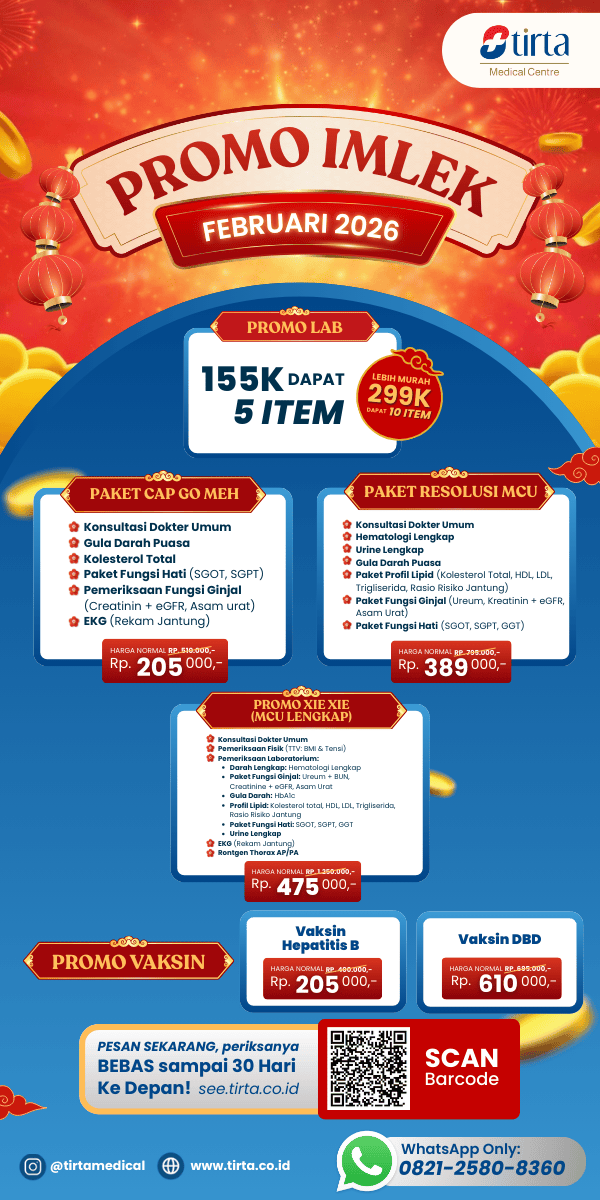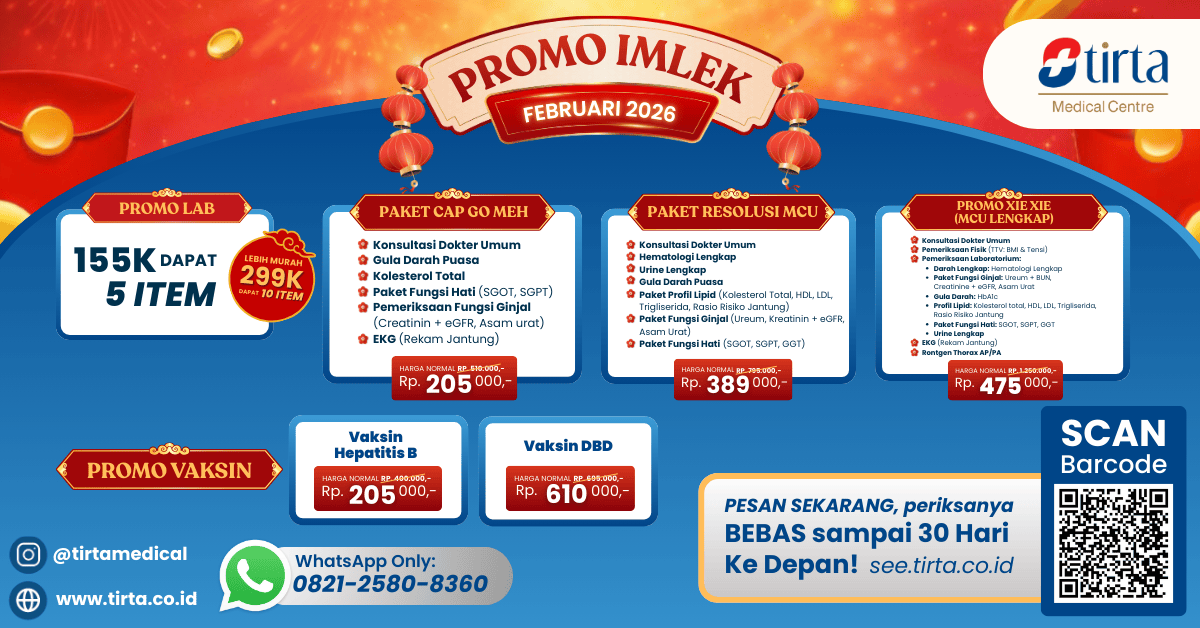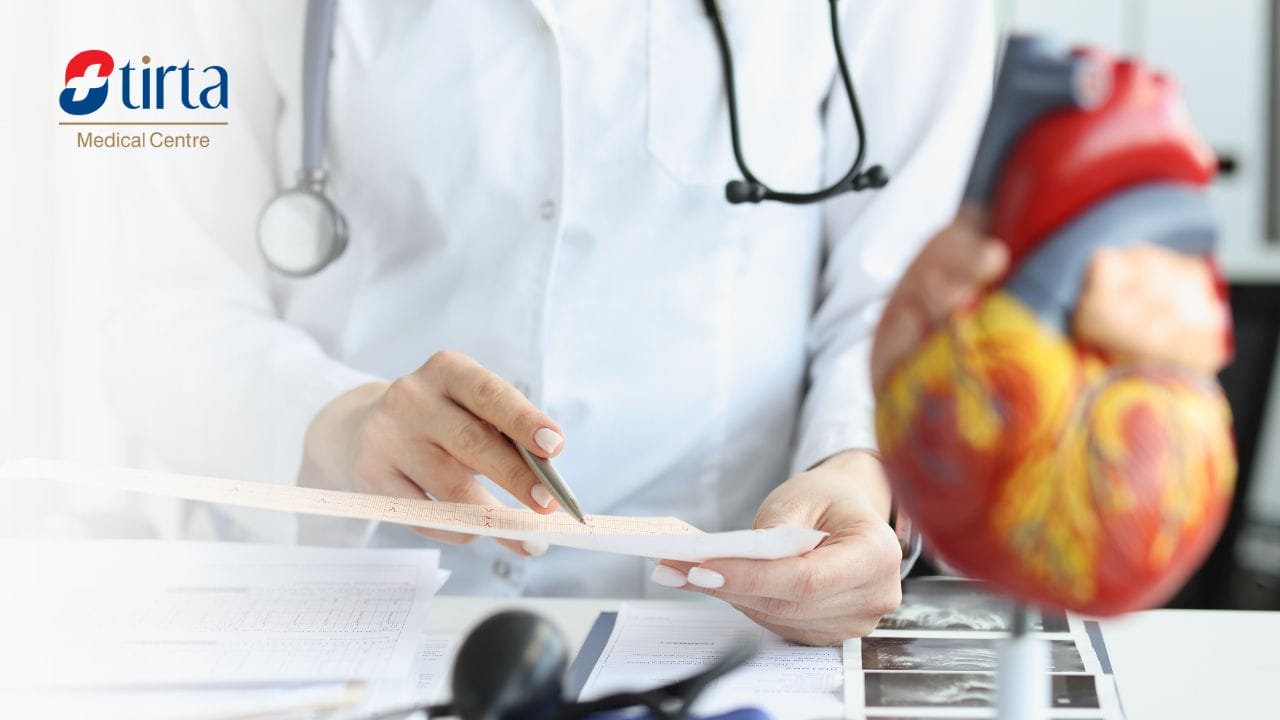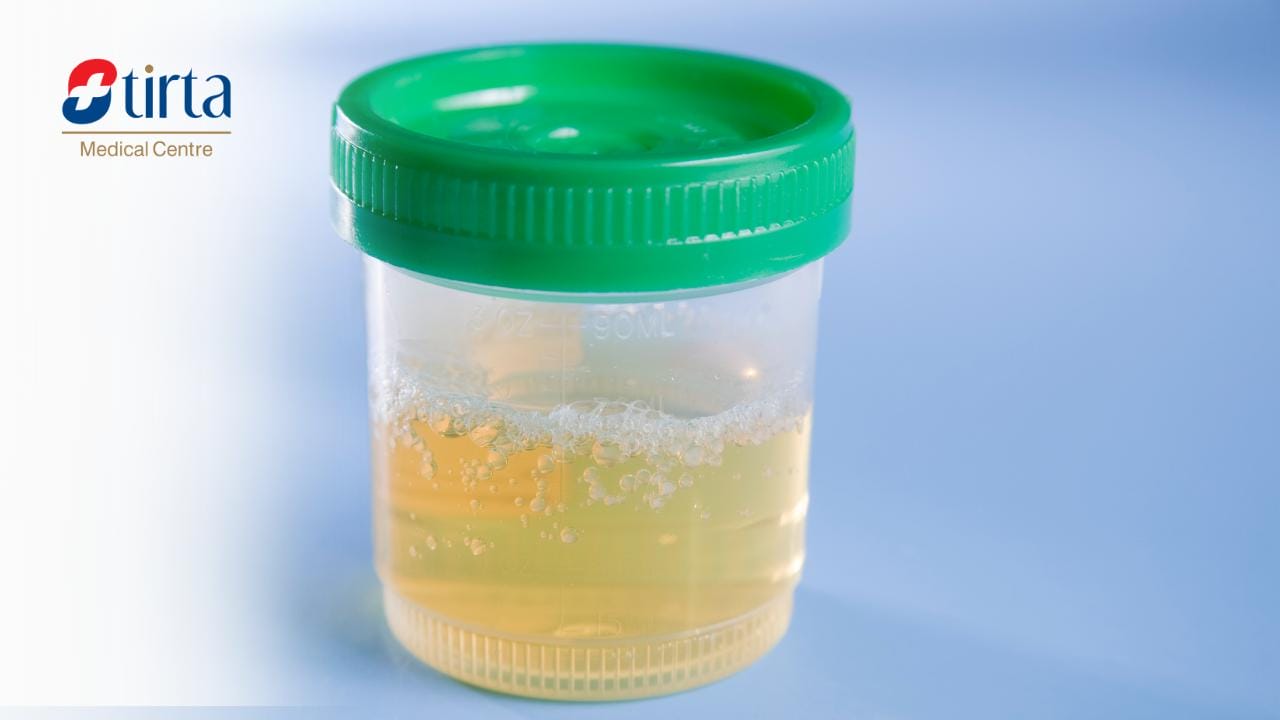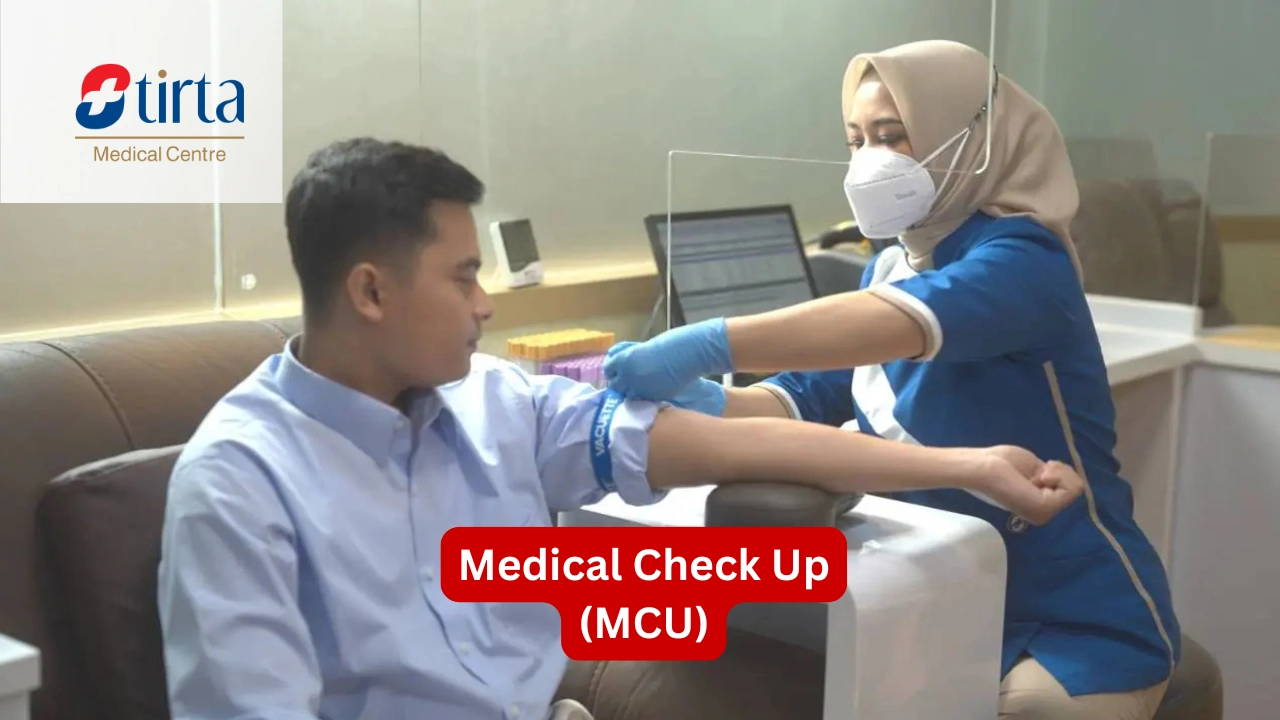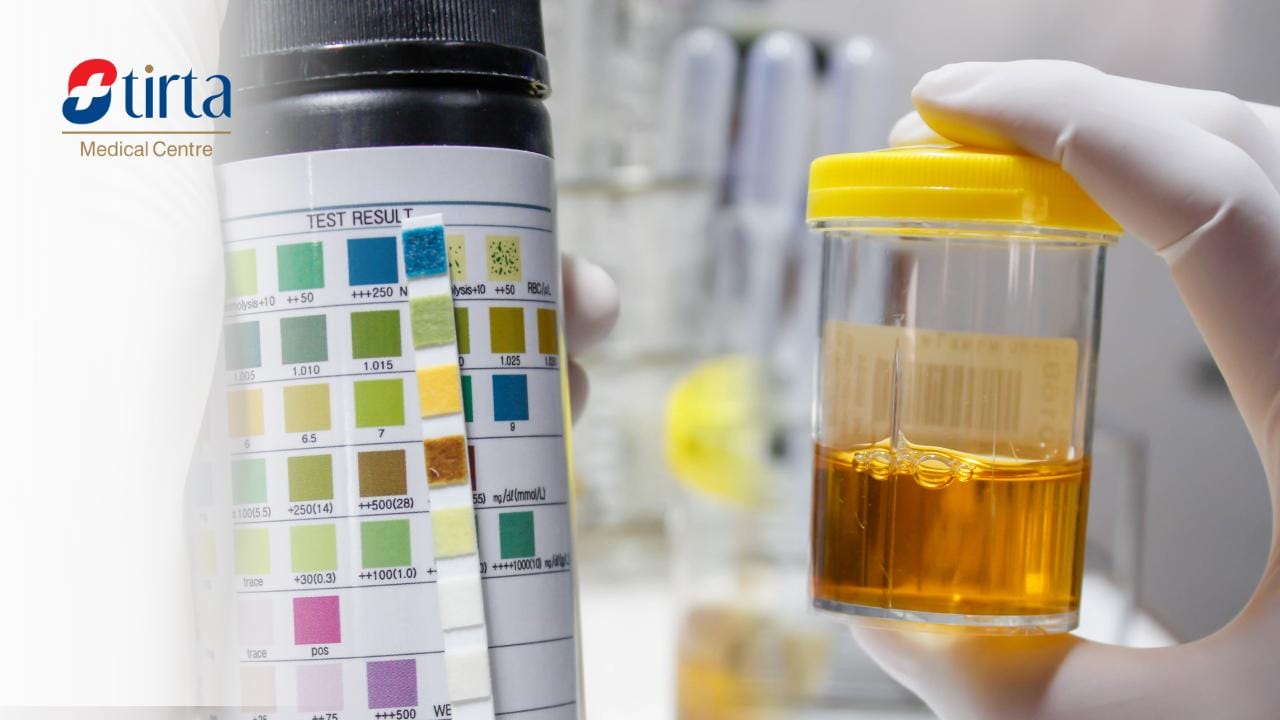Heart examinations are crucial steps in maintaining cardiovascular health and detecting potential problems early. With various methods available, doctors can comprehensively evaluate the function and structure of the heart.
Choosing the right type of heart examination depends on the symptoms, risk factors, and medical history of the patient. Learn about the 8 common types of heart examinations conducted in Indonesia, along with their estimated costs.
Understanding these heart examination options can help Tirta friends and doctors make the right decisions for your heart health.
1. Electrocardiogram (EKG)
EKG is a basic examination to measure and record the heart’s electrical activity. This procedure is quick, non-invasive, and can detect arrhythmias, heart enlargement, or signs of a heart attack. EKG is performed by attaching 10 or 12 electrodes to the patient’s chest, arms, and legs. EKG can help doctors with the following:
- Check heart rhythm
- Detect poor blood flow to the heart muscle (ischemia)
- Diagnose heart attacks
- Identify abnormalities such as thickening of the heart muscle
- Detect electrolyte disorders such as abnormal potassium or calcium levels
Cost of Electrocardiogram (EKG) at Tirta Medical Centre (TMC) = Rp110,000
Note: The above costs may change. For updated EKG prices, please inquire here: Questions & Reservations
2. Echocardiography (Heart Ultrasound)
Echocardiography uses sound waves to produce images of the heart structure. This examination helps assess the function of heart valves, heart walls, and blood flow. Echocardiography is very useful for diagnosing structural heart abnormalities.
During the procedure, the patient lies still while a technician moves a transducer over the chest. This device sends sound waves that bounce off the heart, creating images of the heart chambers and valves. Echocardiography can show the thickness of the heart muscle and how well the heart pumps.
Cost of Echocardiography or Heart Ultrasound at Tirta Medical Center (TMC) = Rp600,000
Note: The above costs may change. For updated heart ultrasound prices, please inquire here: Questions & Reservations
3. Stress Test
This test assesses the heart’s response to physical activity. Patients are asked to walk on a treadmill or use a stationary bike while being monitored with an EKG.
The heart stress test helps detect coronary heart disease and evaluate heart capacity. As the body works harder during the test, the need for oxygen increases, so the heart must pump more blood.
This test can indicate if blood flow to the heart is reduced and assist doctors in determining suitable levels of physical activity for the patient.
Cost of the heart stress test ranges from Rp400,000 – Rp1,400,000
4. CT Scan of the Heart
A heart CT scan produces detailed images of the heart structure and coronary blood vessels. This examination can detect narrowing of the coronary arteries and assess the level of calcification. A heart CT scan is useful for screening for coronary heart disease in high-risk patients.
A heart CT scan uses X-rays and computer technology to produce three-dimensional images of the heart and blood vessels. This procedure can detect plaque in the coronary arteries, which is an early sign of coronary heart disease. A heart CT scan can also assess heart function and identify structural abnormalities.
Cost of heart CT scan ranges from Rp 1,000,000 – Rp 4,000,000
5. Holter Monitoring
Holter monitoring is a non-invasive heart examination that continuously records the electrical activity of the heart for 24-48 hours. The patient wears a portable recording device connected with electrodes on the chest.
This examination is useful for detecting arrhythmias or heart rhythm disorders that may not be visible on a standard EKG. Holter monitoring can help doctors with the following:
- Evaluate symptoms such as palpitations, dizziness, or syncope
- Assess the effectiveness of arrhythmia treatment
- Detect silent myocardial ischemia
- Analyze heart rate variability Cost of Holter monitoring ranges between Rp600,000 – Rp4,300,000
6. Coronary Angiography
Coronary angiography is an invasive procedure to assess the condition of the coronary arteries. A catheter is placed in a blood vessel in the arm or thigh, and a contrast agent is injected into the coronary arteries. This examination is the gold standard for diagnosing coronary heart disease. Benefits of coronary angiography include:
- Detecting narrowing or blockage of the coronary arteries
- Assessing heart valve function
- Measuring pressure in the heart chambers
- Assisting in planning percutaneous coronary intervention or bypass surgery Cost of coronary angiography ranges between Rp 5,000,000 – Rp 33,000,000
7. Heart Blood Test
Several blood tests can help assess the risk of heart disease or detect heart damage. These tests include checking cholesterol, triglycerides, blood sugar, and heart markers such as troponin or CK-MB. Heart blood tests can evaluate the following:
- Lipid profile (total cholesterol, LDL, HDL, triglycerides)
- Fasting blood sugar levels and HbA1c
- Inflammatory markers such as hs-CRP
- Heart enzymes (troponin, CK-MB) to detect heart muscle damage
- BNP or NT-proBNP to assess heart failure Cost of heart blood tests ranges between Rp200,000 – Rp1,700,000 (depending on the type of test)
8. Pharmacologic Stress Test
The pharmacologic stress test is an alternative to the treadmill test for patients who are unable to exercise. Drugs like dobutamine and adenosine boost heart activity, which is then evaluated using echocardiography or nuclear imaging. This test is useful for several purposes:
- Detecting myocardial ischemia in patients who cannot perform the treadmill test
- Assessing myocardial viability post-infarct
- Evaluating global and regional heart function Cost of the pharmacologic stress test ranges between Rp6,000,000 – Rp11,000,000
Keep in mind that costs may vary based on location and facility. Some examinations may be covered by health insurance depending on individual policies.
Ensure your heart health by having regular check-ups at Tirta Medical Centre (TMC), a top healthcare facility in Indonesia. With advanced medical equipment and an experienced team of specialist doctors, Tirta Medical Centre offers the best comprehensive and accurate Heart Medical Check Up.
Tirta friends and family can now access top-notch heart examination services locally, thanks to TMC, which brings international service standards directly to our community.
Trust your heart health to TMC and enjoy peace of mind knowing the condition of your heart thoroughly. Contact TMC now if you have any questions or make a reservation here: Questions & Reservations
References:
- Kemenkes. Accessed in 2024. Holter Monitoring: Is it the same as Electrocardiogram (EKG)?: https://yankes.kemkes.go.id/view_artikel/1922/holter-monitoring-apakah-sama-dengan-elektrokardiogram-ekg
- Kemenkes. Accessed in 2024. Heart Disease Leading Cause of Death, Kemenkes Reminds CERDIK: https://sehatnegeriku.kemkes.go.id/baca/umum/20170801/2521890/penyakit-jantung-penyebab-kematian-tertinggi-kemenkes-ingatkan-cerdik-2/
- Alodokter. Accessed in 2024. Find a Hospital: https://www.alodokter.com/cari-rumah-sakit
- UNPAD Journal. Accessed in 2024. Early Detection of Cardiovascular Disease in Employees: https://jurnal.unpad.ac.id/mkk/article/view/26462
- Mount Elizabeth. Accessed in 2024. 8 Common Heart Scans and Tests: https://www.mountelizabeth.com.sg/health-plus/article/heart-scopes-scans
- HealthyWA. Accessed in 2024. Common medical tests to diagnose heart conditions: https://www.healthywa.wa.gov.au/Articles/A_E/Common-medical-tests-to-diagnose-heart-conditions
- American Heart Association. Accessed in 2024. Diagnosing a Heart Attack: https://www.heart.org/en/health-topics/heart-attack/diagnosing-a-heart-attack
- WebMD. Accessed in 2024. Electrocardiogram (EKG or ECG) Tests: Purpose & Types: https://www.webmd.com/heart-disease/electrocardiogram-ekgs
- Mayo Clinic. Accessed in 2024. CT coronary angiogram: https://www.mayoclinic.org/tests-procedures/ct-coronary-angiogram/about/pac-20385117
- American Heart Association. Accessed in 2024. Heart Health Tests for People with Diabetes: https://www.heart.org/en/health-topics/diabetes/symptoms-diagnosis–monitoring-of-diabetes/heart-health-tests-for-diabetes-patients
- Mayo Clinic. Accessed in 2024. Holter monitor: https://www.mayoclinic.org/tests-procedures/holter-monitor/about/pac-20385039
- NHLBI NIH. Accessed in 2024. Heart Tests – Heart Tests: https://www.nhlbi.nih.gov/health/heart-tests
- OliverWyman. Accessed in 2024. 8 Million Nuclear Stress Tests are Performed in the US. Is This Necessary?: https://www.oliverwyman.com/our-expertise/perspectives/health/2019/apr/-is-this-necessary—-some-docs-order-too-many-expensive–danger.html
